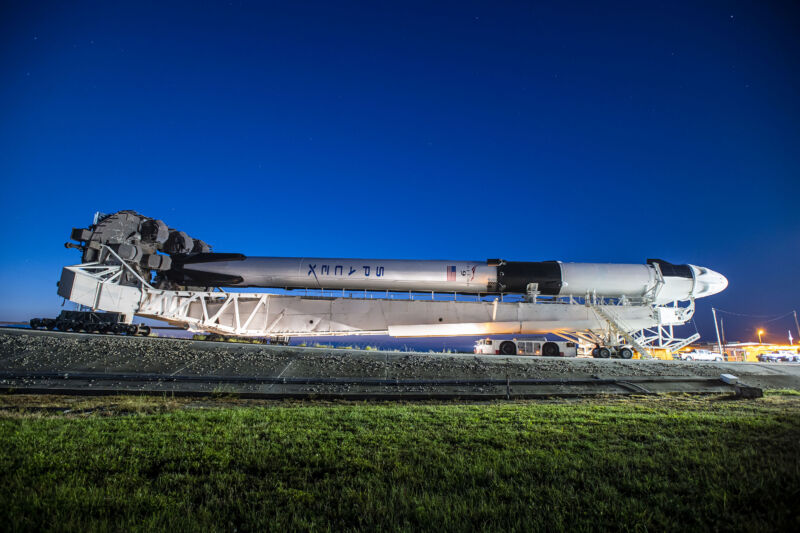
Welcome to Edition 5.39 of the Rocket Report! Weather permitting, SpaceX has a busy weekend of launch ahead. The company has two launches within nine hours of one another on Friday, and then the crewed launch of the Ax-2 private mission on Sunday. Safe travels to all.
As always, we welcome reader submissions, and if you don’t want to miss an issue, please subscribe using the box below (the form will not appear on AMP-enabled versions of the site). Each report will include information on small-, medium-, and heavy-lift rockets as well as a quick look ahead at the next three launches on the calendar.

A Canadian spaceport is valued really, really highly. A Canadian think tank, the Conference Board of Canada, has published an economic analysis on plans to build a launch site in Nova Scotia, spaceQ reports. The report “Launching Canada’s Space Sector: Economic Impact of Spaceport Nova Scotia” finds that construction of such a facility would contribute $171 million to Canada’s GDP and boost employment by an average of 1,608 annual full-year jobs across Canada, with 748 of those jobs within the province of Nova Scotia.
An outlook as sweet as maple syrup … The report has more rosy numbers, too: “Once Spaceport Nova Scotia fully ramps up its operations, we project it will add around $300 million to Canada’s GDP annually, boost revenue to governments by more than $100 million, and create close to 1,000 annual full-year jobs across Canada.” These figures seem astonishingly optimistic given that the launch site does not have a single anchor tenant yet. But I guess you have to start somewhere, and if it takes an economic report like this to unlock government dollars, then more power to Maritime Launch Services, which is developing the spaceport. (submitted by Ken the Bin)
UK will not bail out Virgin Orbit. The British government, which helped buy OneWeb out of bankruptcy three years ago, has no plans to do the same with launch company Virgin Orbit, Space News reports. George Freeman, minister for Science, Innovation, and Technology in the UK government, told a Parliament committee that the government had “taken a close interest” in Virgin Orbit, which filed for Chapter 11 bankruptcy in the United States last month, but had no plans to acquire the company.
Final bids due Friday … Virgin Orbit is nearing the end of a bankruptcy sale process, with final bids due May 19. If the company receives more than one qualified bid, it will hold an auction on May 22, with a hearing about the winning bid in federal bankruptcy court on May 24. In a May 16 court filing, Virgin Orbit announced a “stalking horse” bid agreement with Stratolaunch, which would buy Virgin Orbit’s Boeing 747 aircraft and related equipment for $17 million. That agreement effectively sets a minimum price for the auction but allows others to offer higher bids for the aircraft, other assets, or the entire company. (submitted by Ken the Bin)
VSS Unity flight date set. Virgin Galactic says that May 25 will mark the opening of the launch window for its Unity 25 mission from Spaceport America in New Mexico, Yahoo Finance reports. The VSS Unity spacecraft will include four crew members and a pair of pilots. With the upcoming flight, Virgin Galactic aims to “make a final assessment of the full spaceflight and astronaut experience before commercial service begins,” the company said.
Another flight next month? … Virgin Galactic CEO Michael Colglazier said earlier this month that the company remains on track to start commercial service in June. “Our first commercial flight Galactic 01 is planned for late June and will be a scientific research flight with members of the Italian Air Force,” Colglazier said “We plan to follow Galactic 01 with both civilian astronauts and research customers flying on regular intervals thereafter.” (submitted by brianrhurley, Ken the Bin, and DanNeely)
Vector Launch tests engines with Ursa Major. Vector Launch—yes, that Vector—announced Wednesday that Ursa Major completed acceptance testing of three Hadley first-stage engines for Vector Launch’s upcoming “National Security Mission.” Vector is a reformulated launch company that emerged from the bankruptcy of its predecessor, Vector Space Systems. Interestingly, Jim Cantrell, who was ousted as Vector’s CEO as part of the bankruptcy, went on to found Phantom Space. That launch company is also using engines built by Ursa Major.
All about the mission … So far, the revamped Vector has yet to say much about the design of its new rocket. Instead, we’re left with statements like this: “The upcoming Vector Launch national security mission will rely on Ursa Major’s engines, and the company is confident they will perform within mission specifications. The successful completion of acceptance testing is a major milestone for Vector, and we look forward to conducting a successful launch for our customer,” said Robert Spalding, Vector Launch CEO.
Embry-Riddle students set rocketry record. An amateur rocket set a new record last month, soaring far higher than Mount Everest, Space.com reports. Students from Embry-Riddle Aeronautical University launched a small rocket to a maximum altitude of 14,548 meters. The feat more than doubled the previous record set by US undergraduate and collegiate amateurs, which was 6,706 m.
Climb every mountain … “I fell to my knees, sobbing, from witnessing such an incredible feat,” student Dalton Songer said, evoking the 4,000 hours of work that went into the construction, testing, and launch. “Everyone was celebrating in a giant group hug,” Songer said. “That moment was special—something that only happens when a dedicated group of individuals come together and make something incredible happen against all odds.” Congratulations to all. (submitted by Ken the Bin)
https://arstechnica.com/?p=1940052

